Aging gracefully doesn’t mean compromising on strength, vitality, or overall health. For seniors who have chosen a vegetarian lifestyle, it’s entirely possible to maintain and even build muscle with a well-planned diet.
The 10 vegetarian muscle-building diet for seniors is not just about appearance; it’s about retaining functional strength, agility, and resilience in the face of age-related changes.
This diet is a testament to the fact that one can continue to thrive and stay active regardless of age. It’s a journey that involves smart nutritional choices, focusing on plant-based protein sources, and ensuring the body receives the essential nutrients required for muscle health.
In this exploration, we delve into the science and practical strategies that empower seniors to embrace a vegetarian diet while achieving their muscle-building goals, ultimately supporting a healthier and more active lifestyle in their golden years.
10 Vegetarian Muscle-Building Diet For Seniors
Here’s a guide to a vegetarian muscle-building diet for seniors:
1. Protein-Rich Foods
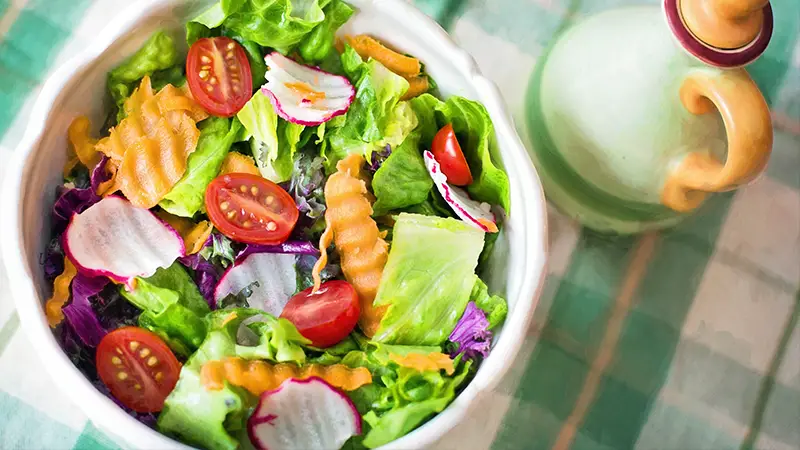
Include tofu, legumes, quinoa, and Greek yogurt. These sources offer essential amino acids, aiding in muscle repair and growth.
Seniors need protein to maintain muscle mass, and plant-based options provide the necessary nutrients without excess saturated fats, promoting overall health and muscle strength.
2. Nutrient-Dense Vegetables
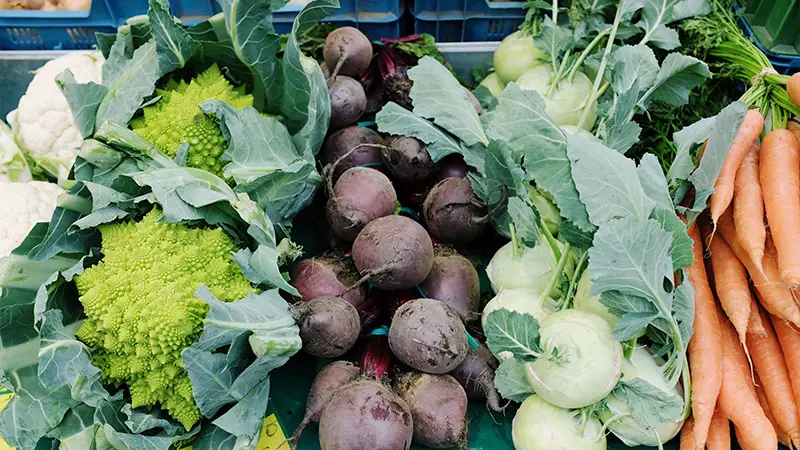
Consume a variety of colorful vegetables like spinach, kale, and broccoli. Packed with vitamins, minerals, and antioxidants, these vegetables support overall health, boost the immune system, and aid in muscle recovery.
The nutrients also help in preventing muscle cramps and promoting optimal muscle function.
3. Whole Grains

Opt for whole grains like brown rice, quinoa, and whole wheat. Whole grains provide a sustained release of energy, aiding in workout performance.
They also contain fiber, aiding digestion and maintaining a healthy weight, which is crucial for seniors aiming to build and sustain muscle mass.
4. Healthy Fats
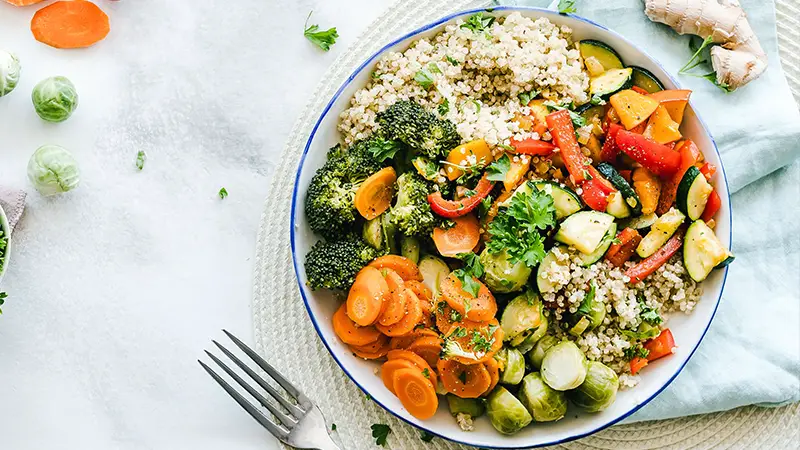
Incorporate sources of healthy fats like avocados, nuts, seeds, and olive oil. These fats provide long-lasting energy, support joint health, and aid in the absorption of fat-soluble vitamins.
Healthy fats also contribute to overall heart health, promoting optimal blood circulation and muscle function.
5. Dairy Alternatives
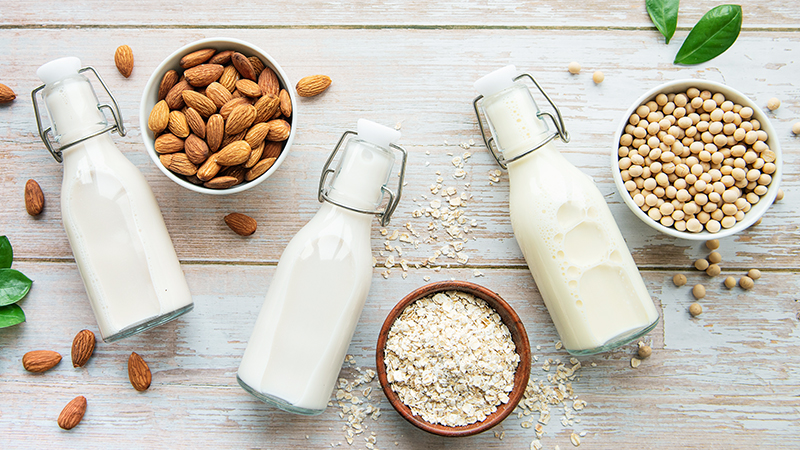
Opt for fortified plant-based milk like almond, soy, or oat milk. These alternatives offer calcium and vitamin D, essential for bone health.
Strong bones are vital for supporting muscle structure and preventing injuries, making dairy alternatives an important part of a vegetarian muscle-building diet for seniors.
6. Snack Smartly
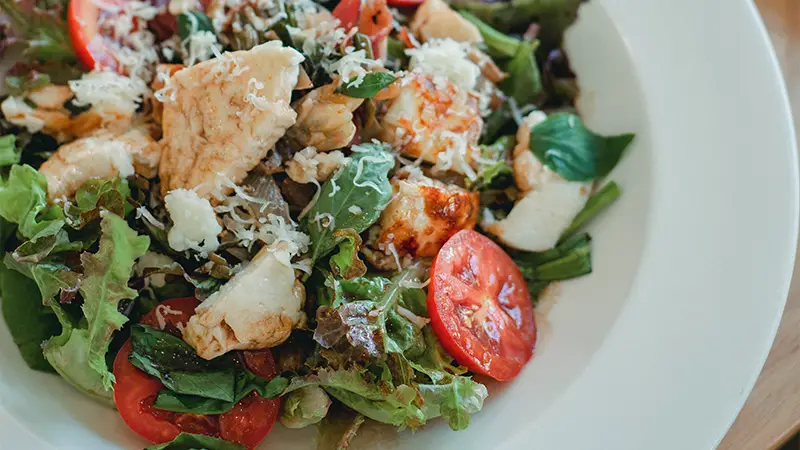
Choose nutrient-dense snacks like mixed nuts, Greek yogurt, or whole-grain crackers with hummus. These snacks provide protein, healthy fats, and complex carbohydrates, supplying sustained energy throughout the day. Smart snacking aids in maintaining blood sugar levels, promoting muscle recovery and overall vitality.
7. Hydration

Stay well-hydrated with water, herbal teas, and natural fruit juices. Proper hydration is essential for muscle function and recovery.
It supports joint lubrication, regulates body temperature, and aids in nutrient transportation, ensuring seniors’ muscles are optimally nourished and reducing the risk of muscle cramps.
8. Plant-Based Proteins

Incorporate sources of plant-based proteins such as lentils, chickpeas, and edamame. These proteins are low in saturated fats and high in fiber, promoting digestion and heart health.
Plant-based proteins are essential for muscle repair and growth, making them a cornerstone of a vegetarian muscle-building diet.
9. Supplement Wisely

Consider supplements like vitamin B12, vitamin D, and omega-3 fatty acids. Seniors might need supplementation due to reduced absorption abilities.
These supplements support overall health, energy levels, and joint mobility, ensuring seniors have the necessary nutrients to maintain muscle strength and vitality.
10. Consult a Nutritionist

Consult a nutritionist to personalize your diet plan. Every individual has unique dietary needs, especially seniors. A professional can create a tailored plan considering factors like metabolism, allergies, and specific health conditions.
A personalized approach ensures seniors get the right nutrients to build and maintain muscle mass effectively.
How Much Muscles Can Seniors Build?
The extent to which seniors can build muscle varies from person to person and is influenced by several factors, including genetics, age, activity level, and overall health.
Here are the muscle groups that seniors can focus on building:
Skeletal Muscles
Seniors can build and maintain skeletal muscles throughout their lives. While it may be challenging to develop muscle mass at the same rate as younger individuals, consistent resistance training and strength-building exercises can help seniors increase muscle size and strength.
Cardiac Muscle
The heart is a muscle that can be strengthened at any age. Cardiovascular exercises, such as walking, swimming, and cycling, enhance heart health and overall endurance.
Seniors can improve their cardiac muscle strength through regular aerobic activity.
Abdominal Muscles
Building abdominal muscles is crucial for core strength and stability. Seniors can engage in exercises like planks, leg raises, and sit-ups to strengthen their abdominal muscles and support good posture.
Back Muscles
Developing the muscles of the back, particularly the erector spinae, is essential for maintaining proper posture and preventing back pain. Resistance training and exercises that target the back, such as rows and lat pulldowns, can help build and tone these muscles.
Leg Muscles
Leg muscles, including the quadriceps, hamstrings, and calves, play a vital role in mobility and balance. Seniors can build and tone these muscles through strength training exercises like squats, lunges, and leg presses.
Shoulder Muscles
Strong shoulder muscles are essential for maintaining upper body mobility and stability. Seniors can work on their shoulder muscles with resistance exercises like lateral raises, front raises, and shoulder presses.
Arm Muscles
Building arm muscles, such as the biceps and triceps, is beneficial for functional strength and overall muscle tone. Seniors can engage in resistance exercises like bicep curls and tricep dips to develop and tone their arm muscles.
It’s important to note that seniors may not experience the same rate of muscle development as younger individuals, but they can make significant improvements in muscle strength, tone, and endurance.
To do so safely, it’s advisable to consult with a healthcare provider or fitness professional to design a personalized workout plan that meets individual needs and goals, while also taking into account any medical conditions or limitations.
What Kind Of Disease Will Be A Barrier For Seniors To Build Muscles?

Several diseases and medical conditions can pose barriers for seniors looking to build muscle. These conditions can affect muscle growth, strength, and overall physical performance.
Here are the types of diseases and conditions:
Sarcopenia
Sarcopenia is age-related muscle loss. It can significantly hinder seniors’ ability to build and maintain muscle, as the body gradually loses muscle mass and strength over time. Resistance training and proper nutrition can help slow down this process.
Arthritis
Arthritis, especially osteoarthritis, can limit joint mobility and cause pain, making it difficult for seniors to engage in strength-building exercises. Proper management and pain relief strategies are essential to enable muscle-building efforts.
Diabetes
Diabetes, particularly uncontrolled diabetes, can lead to muscle wasting and reduced strength. Managing blood sugar levels through medication, diet, and exercise is crucial for seniors with diabetes who wish to build muscle.
Heart Disease
Cardiovascular conditions may limit seniors’ ability to engage in strenuous exercise. While exercise can be beneficial, it’s vital for those with heart disease to consult with a healthcare provider to ensure safe and appropriate workouts.
Chronic Obstructive Pulmonary Disease (COPD)
COPD can impact respiratory function, making it challenging for seniors to engage in aerobic exercises, which are crucial for muscle-building. Consultation with a healthcare provider is essential to create an exercise plan that considers respiratory limitations.
Osteoporosis
Osteoporosis weakens bones, increasing the risk of fractures. This condition may limit the intensity of weight-bearing exercises, but strength training, tailored to individual needs and under medical supervision, can help improve muscle mass and bone density.
Neurological Disorders
Conditions such as Parkinson’s disease or multiple sclerosis can affect muscle control and coordination. These conditions require specialized exercise programs and may pose challenges in building and maintaining muscle.
Overcoming these barriers often involves a personalized approach, consultation with healthcare providers, and adaptations to exercise and nutrition plans to accommodate the specific needs and limitations associated with these diseases and conditions.
A well-designed and supervised exercise program, in conjunction with proper medical management, can still help seniors improve their muscle strength and overall health.
FAQs
Is it possible for seniors to build muscle on a vegetarian diet?
Absolutely. Seniors can build muscle on a vegetarian diet by focusing on plant-based protein sources, incorporating a variety of whole foods, and adhering to a well-balanced diet.
Adequate protein intake, along with proper exercise, is key to muscle development, even for seniors.
What are some protein-rich vegetarian foods for seniors looking to build muscle?
Seniors can get ample protein from foods like beans, lentils, tofu, tempeh, Greek yogurt, nuts, seeds, and quinoa. These sources are not only rich in protein but also provide essential nutrients for muscle health.
How does a vegetarian diet benefit seniors in muscle-building efforts?
A vegetarian diet offers numerous benefits, such as reduced saturated fat intake, lower risk of chronic diseases, and enhanced overall health. By emphasizing plant-based foods, seniors can promote muscle health, improve recovery, and support their active lifestyle.
Can seniors meet their protein requirements solely from plant-based sources?
Yes, seniors can meet their protein needs through plant-based sources. Combining various protein-rich foods and consuming a well-rounded diet that includes grains, legumes, nuts, and vegetables ensures sufficient protein intake, supporting muscle development and overall health.
Are there specific dietary considerations for seniors when following a vegetarian muscle-building diet?
Seniors should pay attention to overall nutrient intake, including protein, fiber, vitamins, and minerals like calcium and vitamin B12. Staying hydrated and consulting with a healthcare provider or dietitian to address individual nutritional needs is crucial to a successful vegetarian muscle-building diet for seniors.
Conclusion
The vegetarian muscle-building diet for seniors offers a path to not just maintaining but enhancing muscle strength, overall health, and quality of life.
It’s a celebration of the power of plant-based nutrition to promote muscle health and agility, defying the misconception that aging inevitably leads to frailty.
As we conclude this journey, it becomes evident that age is not a barrier to building and maintaining muscle.
A well-balanced vegetarian diet, rich in protein, whole foods, and essential nutrients, provides the foundation for strength and vitality. The result is not only toned muscles but a fuller, more active life that proves that age is just a number.
Seniors can continue to enjoy a fulfilling and energetic lifestyle by nourishing their bodies with the right vegetarian diet.
Hi, I’m Mark Pattinson and I’m a freelance personal trainer. I’ve been working in the fitness industry for over 10 years especially since I work with diabetes patients and I love helping people achieve their fitness goals. I believe that everyone can benefit from a good workout, and I’ll do everything to make sure you get the most out of your training.